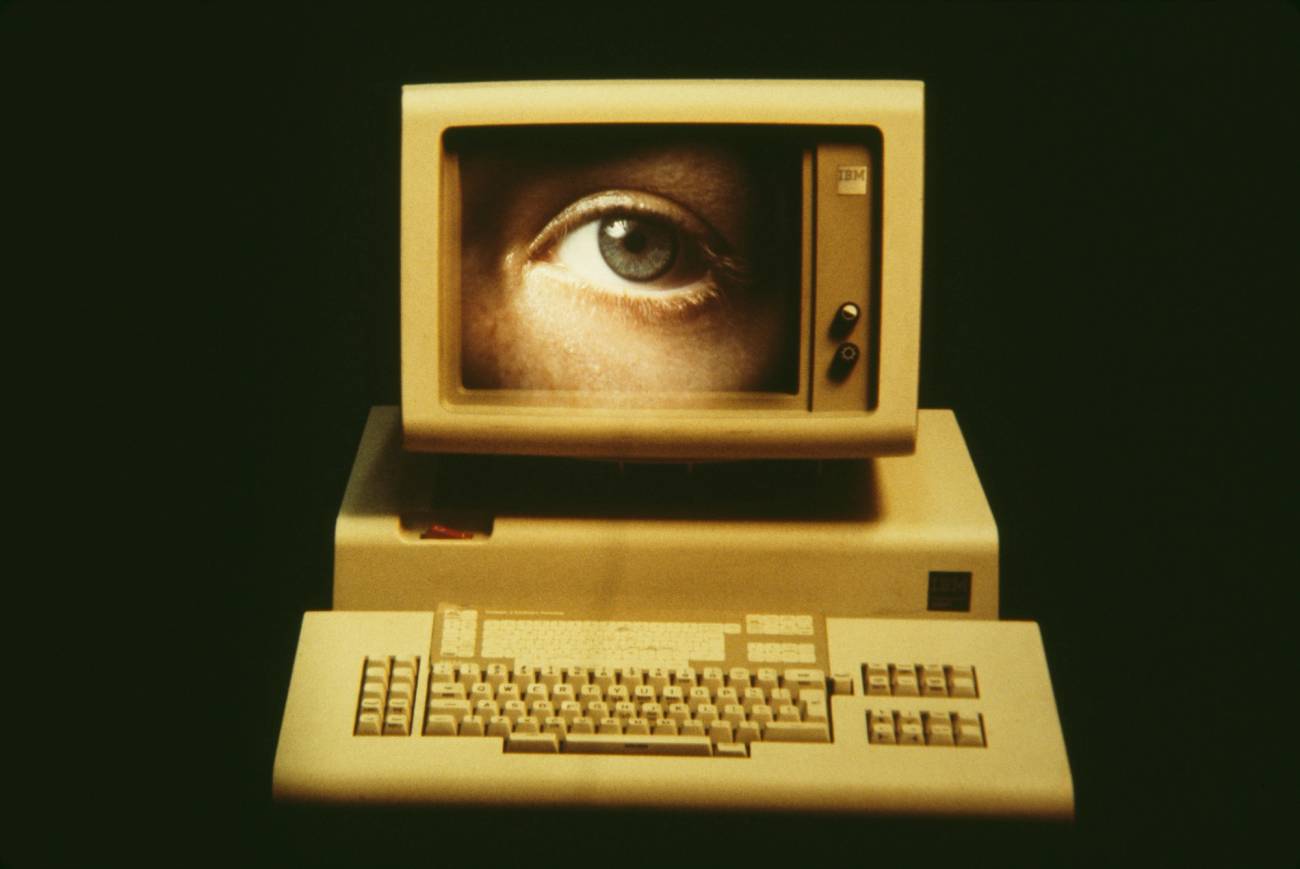 Propalestyńscy demonstranci gromadzą się przed izraelskim konsulatem w San Francisco dwa dni po masakrze przez Hamas 1400 mężczyzn, kobiet i dzieci w południowym Izraelu, 9 października 2023 r. Źródło: Phil Pasquini/Shutterstock.
Propalestyńscy demonstranci gromadzą się przed izraelskim konsulatem w San Francisco dwa dni po masakrze przez Hamas 1400 mężczyzn, kobiet i dzieci w południowym Izraelu, 9 października 2023 r. Źródło: Phil Pasquini/Shutterstock.
 Popierają „Palestynę”, ponieważ nienawidzą Żydów
Popierają „Palestynę”, ponieważ nienawidzą Żydów
Jonathan S. Tobin
Tłumaczenie: Małgorzata Koraszewska
Czas przestać udawać, że ci, którzy maszerują w obronie Hamasu lub opowiadają się za zniszczeniem Izraela, bronią praw człowieka.
W zeszłym tygodniu antyizraelskie protesty na kampusach uniwersyteckich i na ulicach głównych miast trwały i przybrały na sile. W Europie liczba osób wyrażających „solidarność z Palestyną” jest jeszcze większa, ponieważ setki tysięcy maszerowały, gdy Izrael rozpoczął ofensywę lądową w Strefie Gazy.
Szeroko publikowano i transmitowano materiał filmowy i zdjęcia przedstawiające ogromne tłumy ludzi wymachujących palestyńskimi flagami i wrzeszczących obelgi pod adresem Izraela i Żydów. Podobnie, mamy także relacje o incydentach, podczas których Żydzi byli zastraszani lub gorzej w miejscach publicznych, kiedy agresywni przeciwnicy Izraela, którzy twierdzą, że bronią narodu palestyńskiego, dawali upust swojej żółci i próbowali wypędzić z przestrzeni publicznej tych, którzy się z nimi nie zgadzali.
Przypadki antysemityzmu gwałtownie rosną w Stanach Zjednoczonych, a także przybierają na bezczelności i brutalności w Europie, gdzie Żydzi mieli już uzasadnione powody, aby obawiać się publicznego utożsamiania się ze swoją wiarą. Równie przerażający jest sposób, w jaki groźby w Internecie skierowane przeciwko Żydom nie tylko lawinowo nasilały się, ale obecnie prowadzą do konkretnych zagrożeń wobec społeczności i instytucji żydowskich.
Jednak liderzy opinii i osoby wpływowe w mediach społecznościowych mówią nam, byśmy nie wierzyli własnym kłamliwym oczom i uszom, gdy widzimy narastające dowody antysemityzmu. Wyciąganie wniosków z zachowań ludzi krzyczących, że „Palestyna będzie wolna od rzeki do morza”, niosących plakaty o wrzucaniu Żydów do śmietnika czy zdzierających plakaty ze zdjęciami izraelskich ofiar porwań, jest błędem. Mówi się nam, że tacy ludzie po prostu wyrażają naturalne współczucie, jakie obywatele o nastawieniu humanitarnym żywią dla uciskanych Palestyńczyków. Jeśli mówisz, że jest to poparcie dla Hamasu, to pokazujesz swoją ukrytą islamofobię. A jeśli uważasz, że tacy ludzie powinni zostać pociągnięci do odpowiedzialności, to promujesz kulturę anulowania i próbujesz zablokować wolność słowa.
Poparcie dla „Palestyny”
Współczucie dla palestyńskich mieszkańców Gazy, których życie zostało zakłócone i zagrożone przez wojnę rozpoczętą przez Hamas 7 października wraz z barbarzyńskimi transgranicznymi atakami terrorystycznymi na społeczności w południowym Izraelu, jest zrozumiałe, a nawet godne pochwały. Jednak ofiary cywilne są nieuniknionym i zamierzonym skutkiem terroryzmu Hamasu. Nawet pomijając kwestię popularności Hamasu, ludzie w Gazie nie umierają za „wolną Palestynę”. Umierają, by chronić grupę, która od 2007 roku rządzi ich przybrzeżną enklawą jako islamistyczna tyrania i której zadeklarowanym celem – uwidocznionym w okrucieństwach z 7 października – jest zniszczenie państwa Izrael i rzeź jego żydowskiej ludności. Protesty nie są też jedynie wyrazem współczucia dla trudnej sytuacji ludzi, którzy nie z własnej winy znaleźli się w pułapce strefy działań wojennych.
Jak wyraźnie pokazują flagi, plakaty i przemówienia wygłoszone podczas tych wydarzeń, skupiono się nie tylko na przedstawieniu Izraela jako państwa, które reaguje „nieproporcjonalnie” na ataki na swoich obywateli w obrębie własnych granic, jakkolwiek absurdalne może być to oskarżenie. Ich celem jest raczej zebranie poparcia dla „Palestyny”.
Zdefiniowanie, czym właściwie jest „Palestyna”, pozostaje ważnym pytaniem. Według Arabów palestyńskich składa się ona nie tylko z rządzonej przez Hamas Strefy Gazy oraz terytoriów Judei i Samarii („Zachodni Brzeg”), których arabska populacja jest rządzona autonomicznie przez Autonomię Palestyńską kierowaną przez Partię Fatah; ten obszar na zachód od Jordanii uznawany jest za teren sporny od wojny sześciodniowej w 1967 r. Raczej postrzegają cały Izrael, jak również te terytoria, jako Palestynę. A kiedy mówią, że musi być „wolna”, mają na myśli zlikwidowanie państwa Izrael, coś, co mogło by stać się jedynie przez ludobójstwo całej ludności żydowskiej.
Poparcie dla tej koncepcji wynika z wiary wzmocnionej przez rozpowszechnienie krytycznej teorii rasy i nauk intersekcjonalnych, które fałszywie postrzegają Izrael jako wyraz kolonializmu i imperializmu, w którym „biali” ciemiężyciele prześladują „ludzi kolorowych”. Idee te łączą walkę o prawa obywatelskie w Stanach Zjednoczonych i przeciwko apartheidowi w Republice Południowej Afryki z chęcią wymazania z mapy jedynego państwa żydowskiego na świecie.
Jak sama Karen Attiah, redaktorka „Washington Post” zajmująca się opiniami globalnymi, napisała w zeszłym tygodniu, poparcie dla lewicowego Hamasu, w szczególności wśród Afroamerykanów, wynika z ich przekonania, że Izrael musi zostać „zdekolonizowany” wraz z każdym innym śladem zachodniej cywilizacji.
Wymazując samą ideę praw Żydów, oprócz tysięcy lat historii i wiary, Attiah upiera się, że żydowscy liberałowie muszą pozbyć się myśli, że ich niegdysiejsi sojusznicy z mniejszości ich porzucają. Jeśli istnieje „solidarność z Palestyną”, dzieje się tak dlatego, że samo istnienie Izraela jest zbrodnią. Następnie ponownie rozpowszechnia krwawe oszczerstwo, jakoby Izrael pomógł szkolić policję w Ferguson w stanie Missouri w zabijaniu Afroamerykanów. Narzeka też, że niewłaściwe jest oskarżanie ludzi, którzy chcą wyeliminować Izrael, o bycie antysemitami, mimo że Żydzi są jedynym narodem, którego „postępowcy” chcą pozbawić ojczyzny i odmówić im prawa do obrony.
W ten sam sposób list podpisany przez wielu członków wydziału Uniwersytetu Columbia bronił studentów wspierających Hamas i zniszczenie Izraela. Określił także niewypowiedziane okrucieństwa Hamasu 7 października jako „reakcję militarną” i „okupowany naród korzystający z prawa do stawiania oporu brutalnej i nielegalnej okupacji”.
To, co dzieje się na kampusach uniwersyteckich i podczas demonstracji, jest pełnym wyrazem ruchu antysemickiego, który pragnie końca Izraela. Jak powtarzają nam demonstranci, jeśli oznacza to, że 1400 izraelskich mężczyzn, kobiet i dzieci musi zostać wymordowanych, Żydówki muszą być zgwałcone i torturowane, a niemowlęta i dzieci uprowadzane, to jest to los, na jaki zasłużyli ci „okupanci”.
Nie ma to nic wspólnego z rzekomymi złymi czynami Izraela. Twierdzenie jest takie, że jeśli mają być szanowane „prawa” Palestyny, wówczas prawa Żydów można wymazać i życie Żydów nie ma znaczenia. W odróżnieniu do poprzednich wersji antysemityzmu, które nie zawracały sobie głowy ubieraniem nienawiści w kostium obrony praw człowieka, współczesna nienawiść do Żydów udaje wartości postępowe i jest propagowana w prestiżowych miejscach akademickich i dziennikarskich przez osoby szanowane przez społeczeństwo.
Jeśli instytucje liberalne, takie jak „Washington Post” i wydział Uniwersytetu Columbia, nie mają skrupułów w usprawiedliwianiu nienawiści do Żydów, dlaczego mielibyśmy być zaskoczeni, kiedy żydowscy studenci byli zamykani w bibliotece Cooper Union College lub grożono im przemocą na Uniwersytecie Cornell ? Co więc jest tak szokującego, gdy tłumy na ulicach Nowego Jorku, Chicago, Londynu i innych dużych miast wołają o żydowską krew? I jeśli ich odpowiednicy w miejscach takich jak Dagestan w Federacji Rosyjskiej biorą udział w rozruchach i polują na podejrzanych o żydostwo na lotniskach?
Przestańmy więc udawać, że protesty o „Palestynę” dotyczą praw człowieka. Gdyby tak było, protestowaliby przeciwko terroryzmowi Hamasu. Jeśli wyrażanie współczucia dla żydowskich ofiar i, powiedzmy, żądanie uwolnienia przetrzymywanych jako zakładników dzieci i dziadków to zbyt wiele, mogliby skrytykować użycie przez terrorystów ludzkich tarcz. Obejmuje to terrorystów Hamasu, którzy umieścili swoją kwaterę wojskową pod szpitalem, gromadzą dla siebie zapasy w Gazie, żądając jednocześnie, aby świat dał więcej pomocy Palestyńczykom i odmawiając pozwolenia cywilom znajdującym się pod ich rządami na ucieczkę przed walkami.
Ale oni niczego takiego nie robią. Zamiast tego grożą Żydom, niszczą plakaty przedstawiające porwanych Izraelczyków i wyrażają swoje poparcie dla zastąpienia Izraela „Palestyną”.
Antysemityzm i kultura anulowania
Nie powinniśmy też traktować tego publicznego wyrazu antysemityzmu jedynie jako czegoś, o czym przyzwoici i honorowi ludzie powinni usiąść i podyskutować. Nie ma tu na to miejsca.
Pomysł, że jest coś złego w publicznym demaskowaniu tych, którzy angażują się w antysemityzm, jest dziwaczny, zwłaszcza jeśli pochodzi od tych członków świata akademickiego, którzy zrobili wszystko, co w ich mocy, aby wypędzić konserwatywnych krytyków z ich toksycznymi teoriami z życia publicznego. Kultura anulowania polega na demonizowaniu i karaniu tych, którzy angażują się w normalną debatę polityczną. Sprzeciwianie się temu nigdy nie oznaczało usprawiedliwiania i obrony rzeczywistego rasizmu, takiego jak w przypadku neonazistów lub członków Ku Klux Klanu.
Dlatego właśnie atakowanie studentów Harvardu, którzy popierają zniszczenie Izraela i popierają terroryzm Hamasu, nie jest złe. Rozsądni ludzie nigdy nie wybaczyliby nikomu, kto sugerowałby lincz Afroamerykanów. A jednak o to proszą ci, którzy kibicują lub usprawiedliwiają pogromy Żydów w Izraelu. W istocie Harvard stara się nawet chronić ich prawo do zatrudnienia w najbardziej prestiżowych kancelariach prawnych i korporacjach w kraju – czego nigdy by nie zrobił w przypadku tych, którzy nawołują do mordowania jakiejkolwiek innej mniejszości.
W rozsądniejszej atmosferze amerykańskiego życia publicznego ci, którzy racjonalizują rzeź Hamasu jako „dekolonizację”, tak jak robi to Attiah, nie byliby redaktorami „Washington Post”. Zostaliby zepchnięci na margines amerykańskiego społeczeństwa, gdzie mogliby bronić dowolnego wariantu antysemityzmu, jaki im się podoba.
To samo można powiedzieć o Candace Owens z „Daily Wire”, która określiła prohamasowską demonstrację w Londynie jako dowód na to, że „ludzie nie akceptują narracji medialnej o tym, co dzieje się na Bliskim Wschodzie, pomimo uporczywej retoryki urzędników rządowych”. Ale czego innego spodziewaliśmy się po obrończyni antysemityzmu Kanye Westa, niezależnie od tego, czy nazywa siebie konserwatystką, czy nie?
Nie chodzi tu o możliwości żydożerców z Harvardu do robienia błyskotliwych karier lub zdolność Owens i Attiah do utrzymania wpływowych stanowisk. Prawdziwym pytaniem jest, czy społeczeństwo posunęło się już tak daleko w akceptowaniu demonizacji Izraela i Żydów, że publiczne wyrażanie nienawiści do Żydów nie wiąże się z żadną karą, niezależnie od tego, czy udają oni współczucie dla Palestyńczyków, czy nie.
Liczy się to, czy moralni ludzie są skłonni zgodzić się z udawaniem, że żądanie unicestwienia Izraela i wymordowania jego ludności jest akceptowalnym dyskursem. Potrzebne jest, aby wszyscy ludzie dobrej woli – bez względu na to, gdzie zajmują się w spektrum politycznym, bez względu na ich wiarę czy pochodzenie – potępili te podłe pomysły jako mowę nienawiści. Co więcej, powinni żądać, aby ci, którzy popierają tę nienawiść, spotkali się z potępieniem i odrzuceniem, jakie spotkałoby ich, gdyby byli zdeklarowanymi nazistami, a nie tylko tymi, którzy wspierają islamistycznych kontynuatorów Hitlera.
Link do oryginału: https://www.jns.org/they-back-palestine-because-they-hate-jews/ JNS Org., 30 października 2023
Jonathan S. Tobin jest redaktorem naczelnym JNS (Jewish News Syndicate). Możesz go śledzić na Twitterze pod adresem: @jonathans_tobin.
Zawartość publikowanych artykułów i materiałów nie reprezentuje poglądów ani opinii Reunion’68,
ani też webmastera Blogu Reunion’68, chyba ze jest to wyraźnie zaznaczone.
Twoje uwagi, linki, własne artykuły lub wiadomości prześlij na adres:
webmaster@reunion68.com



